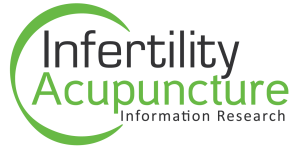Dealing with unexplained infertility can be incredibly challenging, especially because you don’t know the reason behind your struggles to conceive.
While lifestyle changes, timed intercourse, and medical treatments like Clomiphene citrate, intrauterine insemination (IUI), or in vitro fertilization (IVF) are commonly recommended by your general practitioner or reproductive endocrinologist, there may be other options to explore. In recent years, acupuncture has become an increasingly popular complementary treatment for couples experiencing unexplained infertility. Here we will analyse the reasons why acupuncture maybe your best option.
What role does acupuncture play in treating unexplained infertility?
At our clinic, we have seen firsthand the benefits and positive results that reproductive acupuncture can bring to couples struggling to conceive. In fact, we have witnessed some patients who had previously tried other treatments for for many years, conceive naturally under our care.
However, acupuncture research is underfunded and methodologically/technically challenging, therefore there are only a few research papers that specifically explore unexplained infertility.
So understandably, I was excited to see a paper that took on the challenge and shed light on acupuncture’s potential for unexplained infertility.
In this study researchers from China divided women with unexplained infertility into two groups, one receiving acupuncture and the other serving as a control. Both groups were trying to conceive for approximately 5 years. Upon enrolling into the trial all couples had comprehensive fertility workup that included a Hysterosalpingogram (HSG) – a test for blocked Fallopian tubes.
Following HSG, both groups were requested to try conceive naturally for up to cycles or until pregnancy occurred. All women were prescribed 10,000 IU of hCG to trigger ovulation. If not pregnant they underwent 1 – 3 cycles of controlled ovarian hyperstimulation (COH) and timed intercourse.
The acupuncture group had acupuncture for 3 menstrual cycles additionally to prescribed treatments.
The results were worth attention.
Overall pregnancy rates in both groups were higher than is typical for COH. The authors’ reason that this could also be caused by the HSG test. This sounds right, as similar results were achieved in the recent trial using Lipoidal flushing.
There were no significant differences between pregnancy rates in the acupuncture and control groups. However, there was one important difference. Fewer women had to undergo COH, as they were able to conceive naturally. In other words, it was easier for women in the acupuncture group to fall pregnant naturally without the need to resort to controlled ovarian hyperstimulation.
Authors conclude that acupuncture can be used as an adjunctive treatment for couples with unexplained infertility.
Acupuncture made a difference for these couples by reducing time to conception. In other words, it shortened the heartache of the infertility journey.
Treatment of Unexplained Infertility by Acupuncture in Natural and Control Ovarian Hyperstimulation Cycles: A Prospective Analysis
Liuhong Cai, Rihan Hai, Bin Zhang, Yanfei Wen, Minhui Zen, Manbo Jiang
Abstract
Acupuncture is an important method of treatment in Chinese medicine. The objective of this study
was to evaluate the efficacy of acupuncture as an adjuvant treatment for unexplained infertility. Here we conducted a prospective study, with data consisting of acupuncture group (38 cases) and control group (42 cases). Infertility evaluation workup consisted of semen analysis, ovulation assessment, hysterosalpingogram (HSG) and blood analysis. The patients in acupuncture group received 3 acupuncture sessions, and each at seven acupuncture points (EX-CA1, CV4, CV6, SP10, ST36, SP6, and KI3). The session started 12 days before menstruation and continued for 10 days. The patients in control group did not receive acupuncture. All patients tried 1 – 3 natural cycles 3 months after HSG test, if not pregnant, underwent 1 – 3 cycles of control ovarian hyperstimulation (COH) and timed intercourse. Pregnancy was evaluated by measurement of blood human chorionic gonadotrophin (?-hCG) and subsequent trans-vaginal ultrasound. No significant difference of clinical pregnancy rate was found between the acupuncture group and the control group, however, numbers of COH cycles were significantly less and more pregnancies occurred in a natural cycle in the acupuncture group.
We concluded that acupuncture can be used as an adjuvant treatment for unexplained infertility. Although acupuncture did not increase the cumulative pregnancy rate, it decreased the number of COH cycles and more patients got pregnant in natural cycles after receiving acupuncture.
More info here: http://file.scirp.org/pdf/ARSci_2014111116245527.pdf



